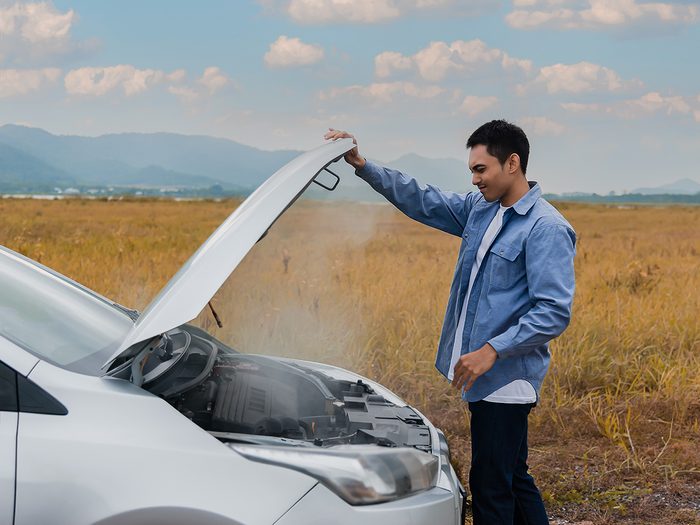
Small issues can lead to big problems
No one wants to admit that their car needs service because no one wants to deal with a potentially hefty bill, but ignoring your car problems is a decision you’ll soon regret. Those leaks, screeches, and dashboard notification lights each indicate an issue that can be serious, dangerous, and costly if you pretend it’s just not there. By dealing with these car problems when they first rear their ugly heads, you can avoid an expensive repair necessary to keep your car running.
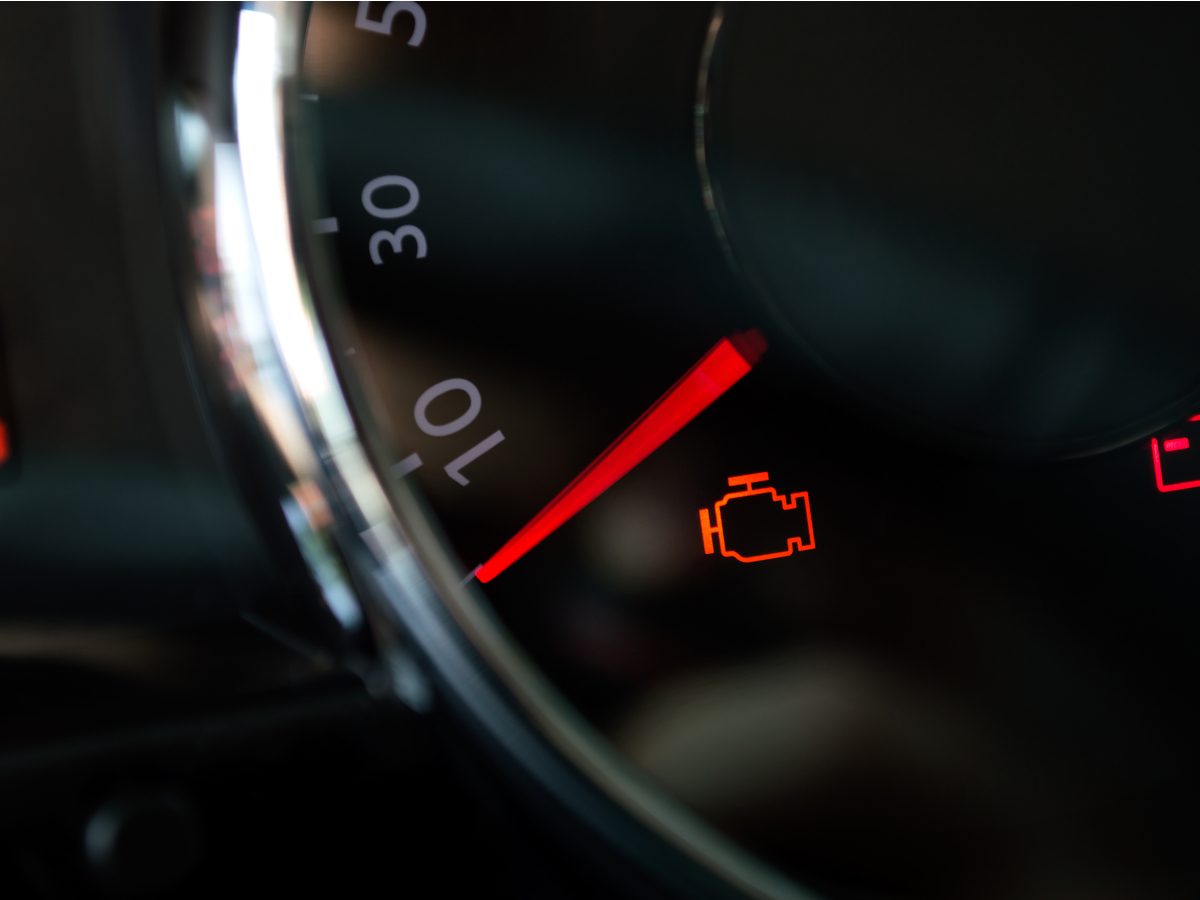
Check engine light
We’ve all been there: The dreaded check engine light just flicked on and you fear a massive bill from your mechanic is in your immediate future. We’re sorry to break the news to you, but fear isn’t a good reason to put off a trip to said mechanic. “If your check engine light turns on, you should have your car tested as soon as possible because it’s a signal that something is wrong,” explains Tony Arevalo from carsurance.net. He knows this is a bitter pill to swallow and that “people often postpone going to the mechanic precisely because the car is still running,” but doing so may cause major damage to your vehicle.
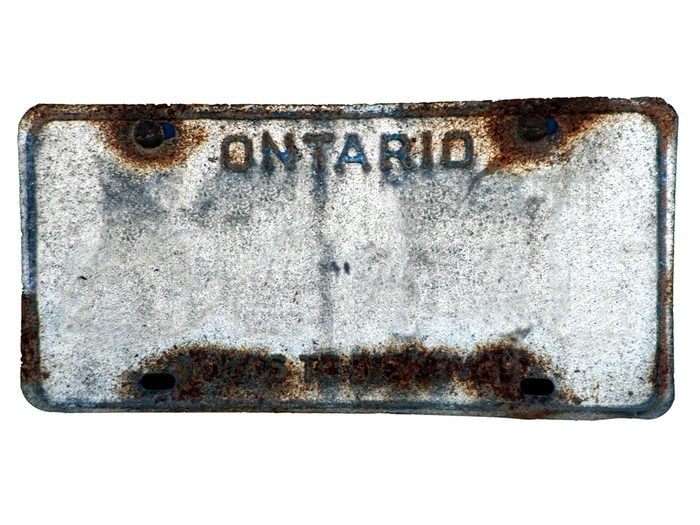
Broken or unreadable license plate
Here’s one car issue that’s probably not at the top of your car maintenance checklist, but that’s a mistake. As Tobias Rawcliffe from Number1Plates.com points out, “having broken or unreadable registration plates can make you worthy of a large on-the-spot fine.” After all, the plates are the legal identifier for your vehicle, and if you’re obscuring them or otherwise making it difficult for authorities to read them, you could get pulled over and ticketed. Luckily, replacing your car’s license plate is a cinch. Just head into your local Ministry of Transportation office and pay the fee for a new plate.
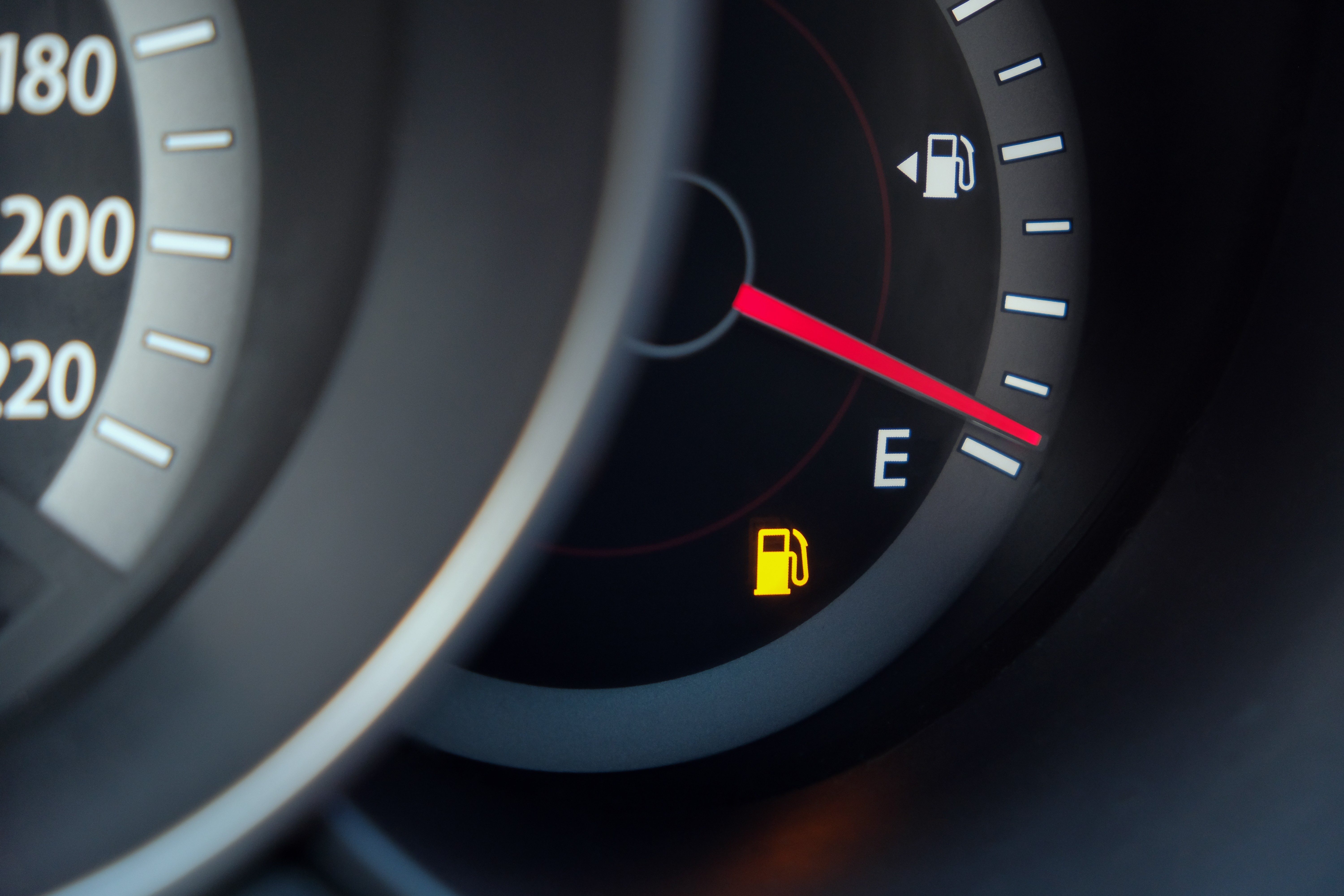
Low gas warning light
You might think you know your car and just how long it will run on just how little gas, but you shouldn’t test this theory—and not just because you might get stuck. Auto professionals and mechanics alike agree that you should not be driving on less than a quarter tank of gas. Laura Gonzalez, Marketing Manager for AutoNation Volkswagen of Las Vegas, says that this is because “the fuel pump uses gas as not only a lubricant but also as a method to keep it cool. If you run your car to the point that it’s almost completely out of gas, you can damage the fuel pump if it sucks in air, causing it to heat up and burn out.” That’s a repair you desperately want to avoid since it’s labour intensive and costly.
Paying too much at the pumps? Here’s how to find the cheapest gas station near you.
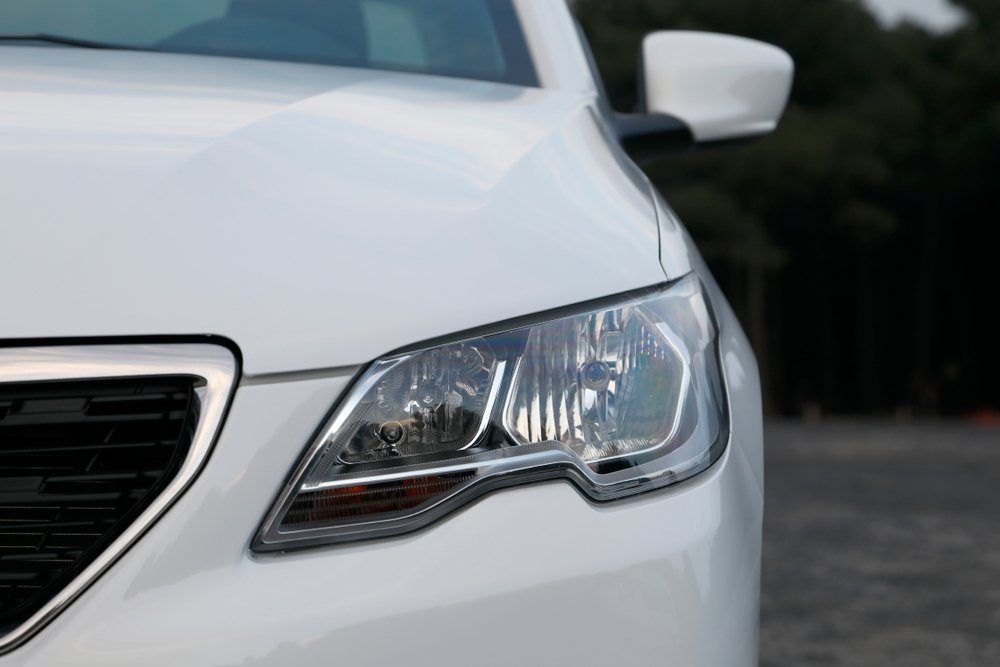
Broken exterior lights
Faulty or broken exterior car lights can impair your vision or the vision of other drivers, says Gonzalez. Having exterior lights not functioning properly, or out completely, could earn you a costly ticket from a police officer on patrol at night. This repair is one of the least expensive, so there’s no reason to ignore this one.
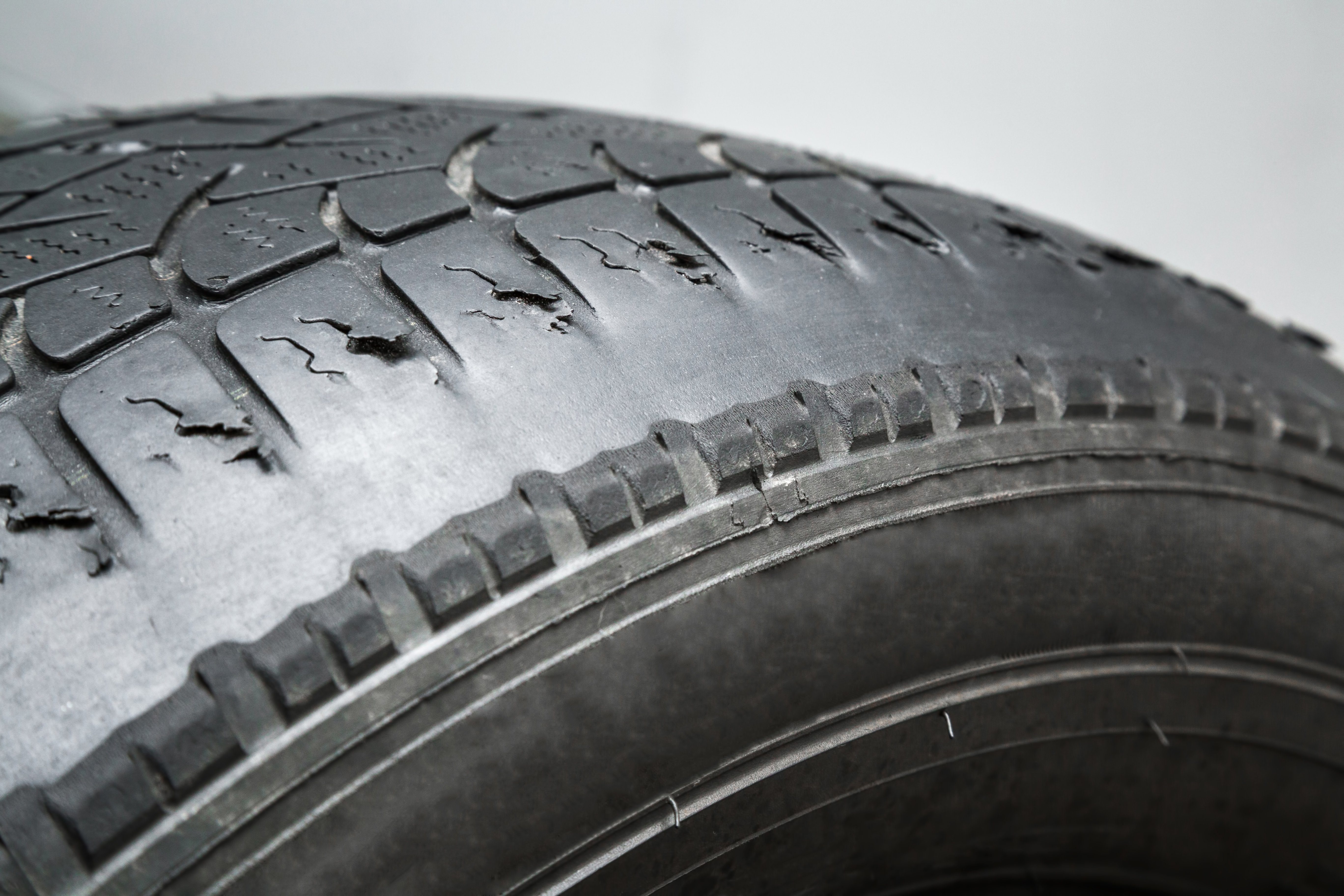
Alignment problems
You may think that you can course-correct your car when your tires are pulling you to the left or right as you drive, but this is a risky prospect. First, it makes it harder for you to stay safe on the road. Second, according to Cindy Price, Import Service Manager at Ricart Automotive, your tires will suffer. The crazy thing is, you may not even realize you have an alignment problem right away since the first sign of a problem isn’t actually your car pulling one way or the other. “What typically happens first is uneven tire wear, and by then it is too late—you need new tires,” Price explains. “Not checking your alignment on a regular basis can end up being very costly in the long run and result in needing new tires more frequently than normal.”
Here’s what can happen if you don’t remove your winter tires in the spring.
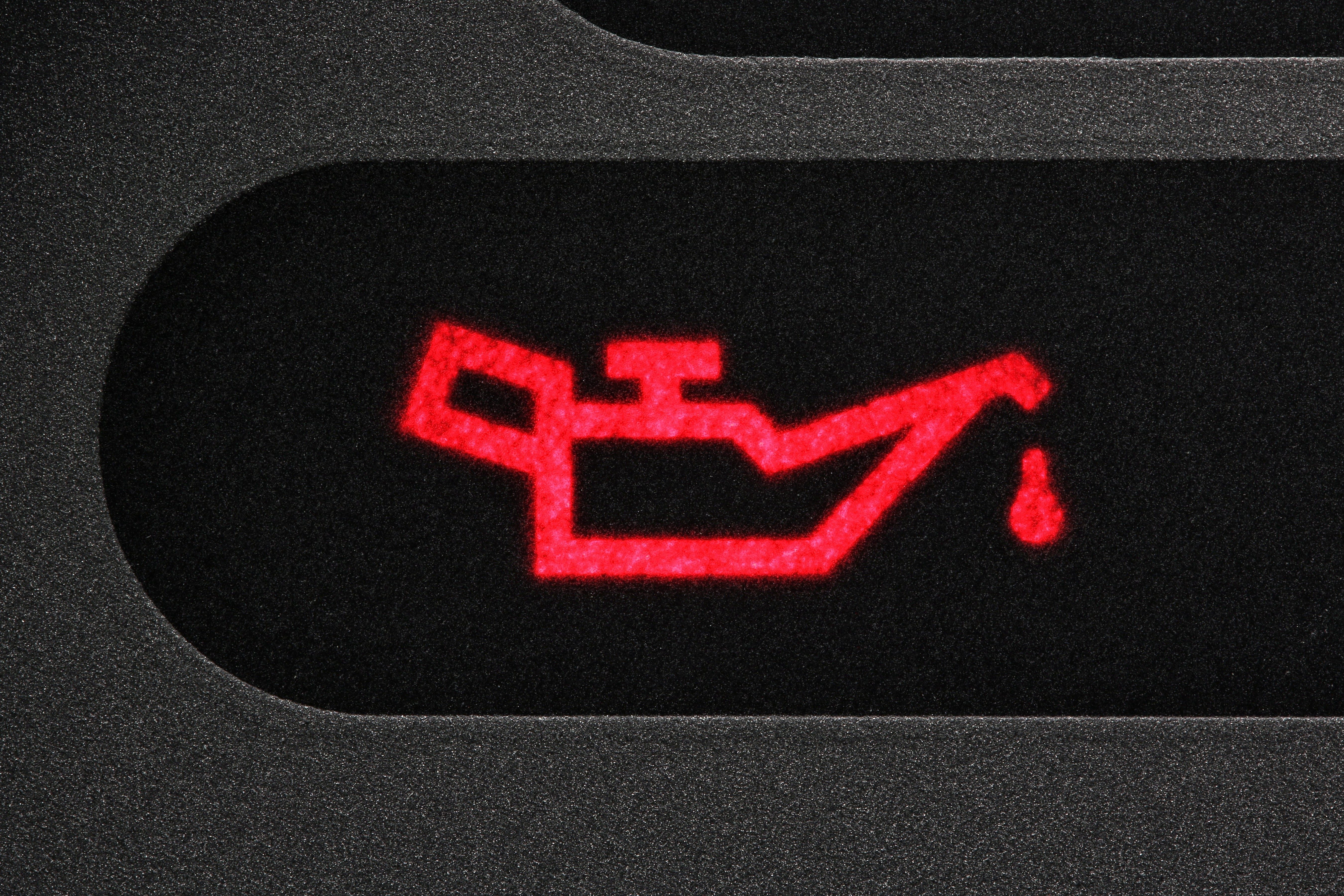
Low oil
When it comes to being low on oil and seeing that oil service light pop up on your dashboard, you likely have a little bit of driving time left before you have a problem. But, Gonzalez says, “ignoring your low oil situation and the oil service light for too long will cause catastrophic failure to your engine.” Changing your oil at the recommended intervals will help extend the life of your engine, as well as help you avoid expensive visits to the dealer’s service bay.
Try this simple hack and you’ll never miss another oil change.
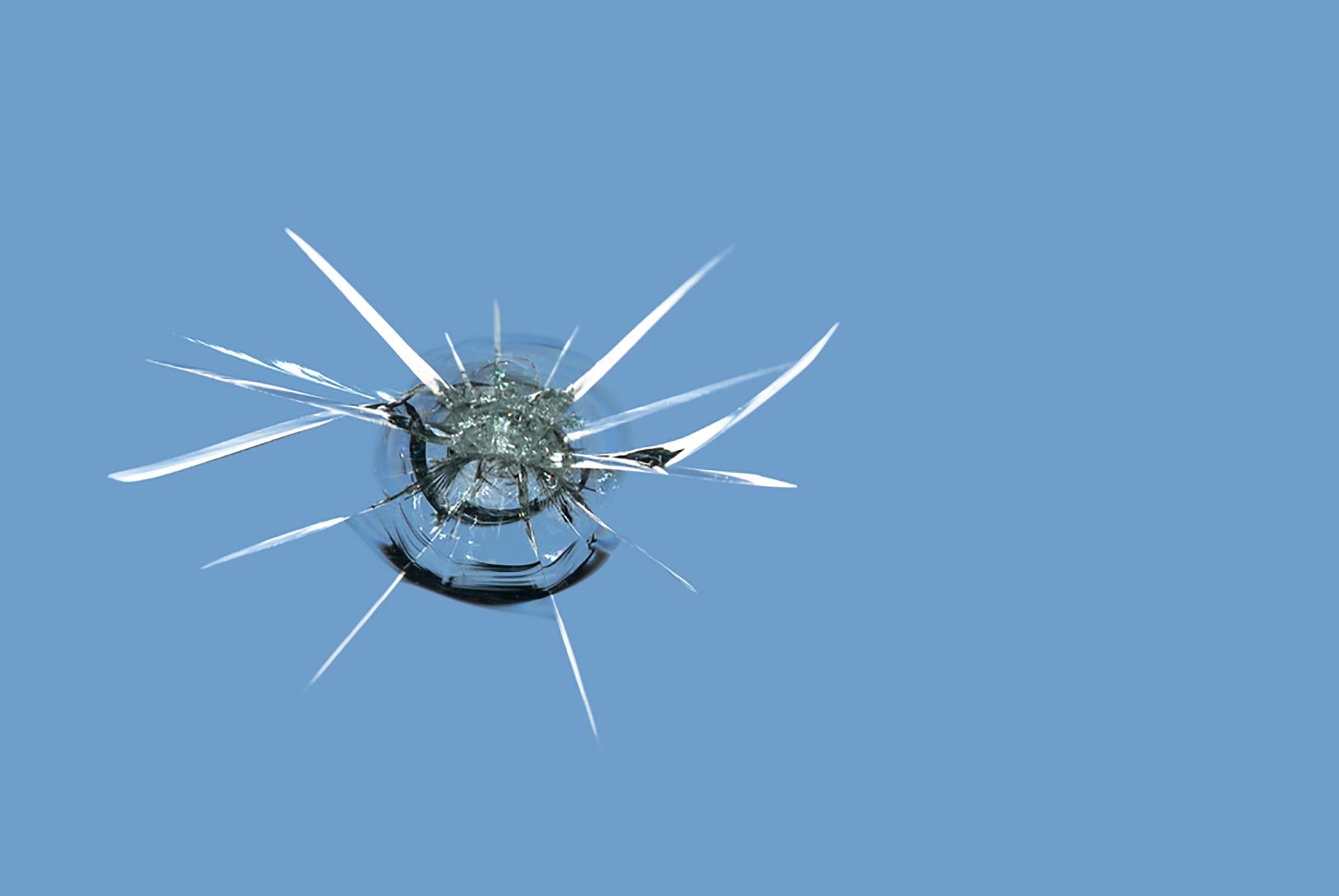
Chipped windshield glass
It’s not just an aesthetic issue. “Your windshield provides up to 30 percent of your vehicle’s structural strength, meaning any chips or cracks can weaken your windshield, compromising your safety in a crash or rollover situation,” says Ed Sprigler, VP of Strategic Initiatives at Safelite AutoGlass. Another reason you shouldn’t ignore chipped windshield glass? “Windshields host an important yet delicate camera called ADAS (Advanced Driver Assistance Systems) that control some of our favourite safety features, such as blind-spot monitoring, lane assist, and auto-braking,” Sprigler explains.
Find out which car repairs you’ve probably wasted money on.
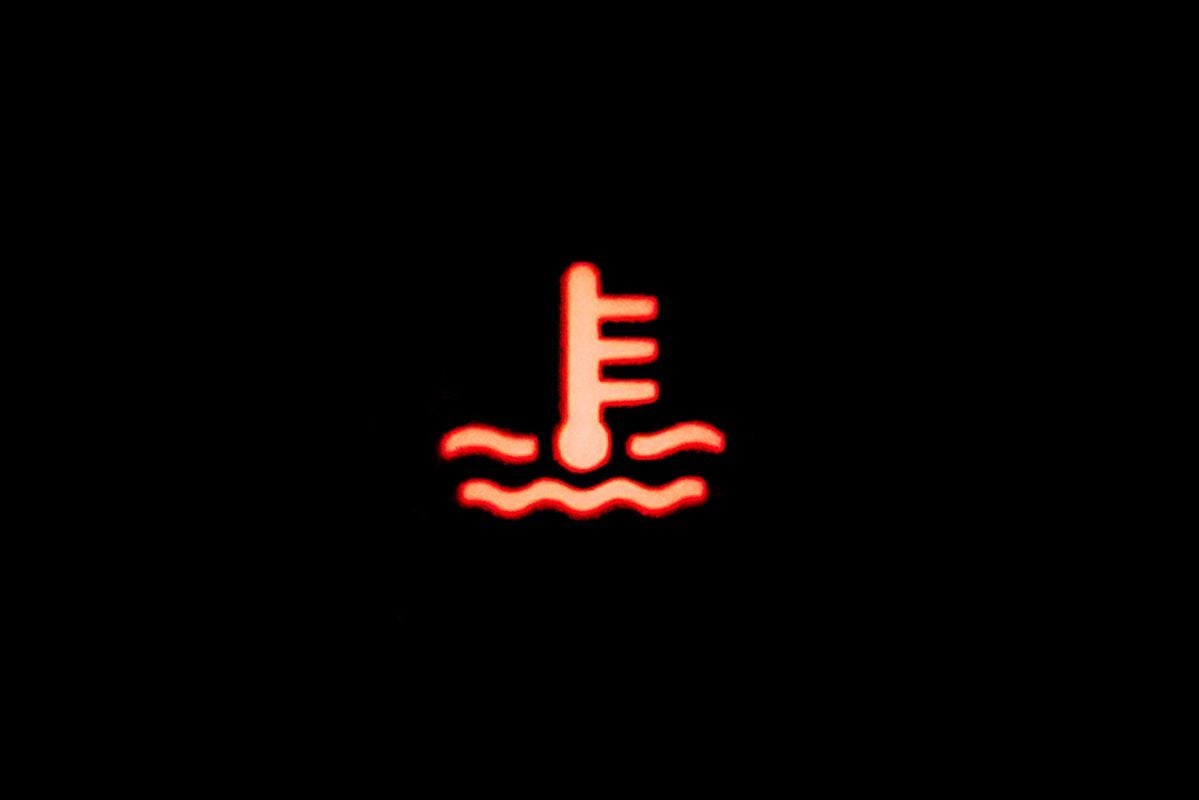
Coolant warning
“The coolant warning light is likely telling you that you have a coolant leak,” says Gonzalez. “Ignoring it could cause your car to overheat your engine and destroy it if the coolant drops too low.” Go in to get it checked out, and whatever you do, don’t use water in place of coolant.
Find out the 20 essential tools every home mechanic needs.
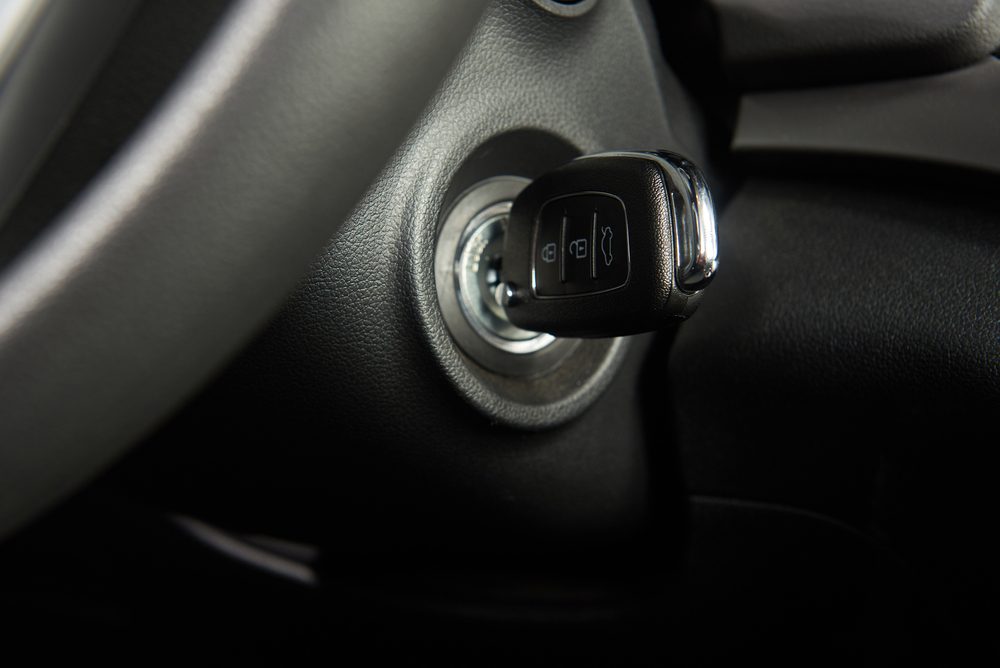
Slow start
“When it comes to auto repair, many people believe that if you ignore a car problem, it will go away, including a slow start,” says Matt Allen, the host of Arizona’s Bumper to Bumper Radio and owner of Virginia Auto Service and Import Car Specialists in Phoenix, Arizona. This is not the case… at all. So, what is a slow start, exactly, and why is it such a problem? “[A slow start is when] you go to start your car and it struggles to turn over for a minute, but then it does,” Allen explains. “This could be a sign of a dead battery or other starter/alternator problems, and unfortunately, this problem will only continue until one day the car won’t start.”
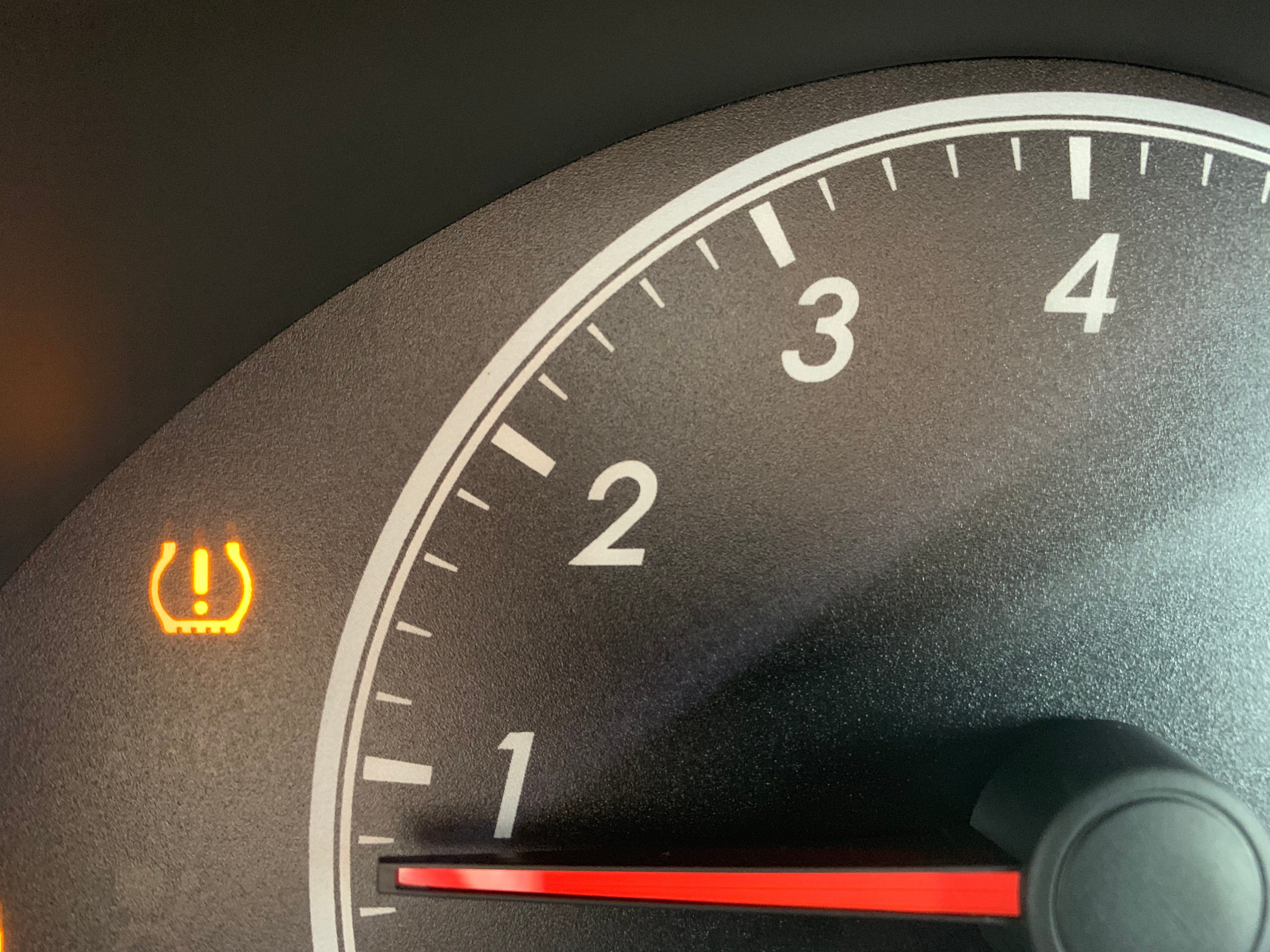
TPMS lights
TPMS (Tire Pressure Monitoring System) lights are another frequent car problem that drivers tend to ignore. “If your tire is losing air, it could be because of a puncture or a worn tire,” says Allen. “When this light comes on, it’s important to make sure your tire is filled with the correct amount of air. If you fill it and the TPMS light keeps coming on, that’s an indicator of a chronic leak, and the tire will need to be fixed.” Not only do you want to avoid a flat, but correct tire pressure will also keep you safe on the road.
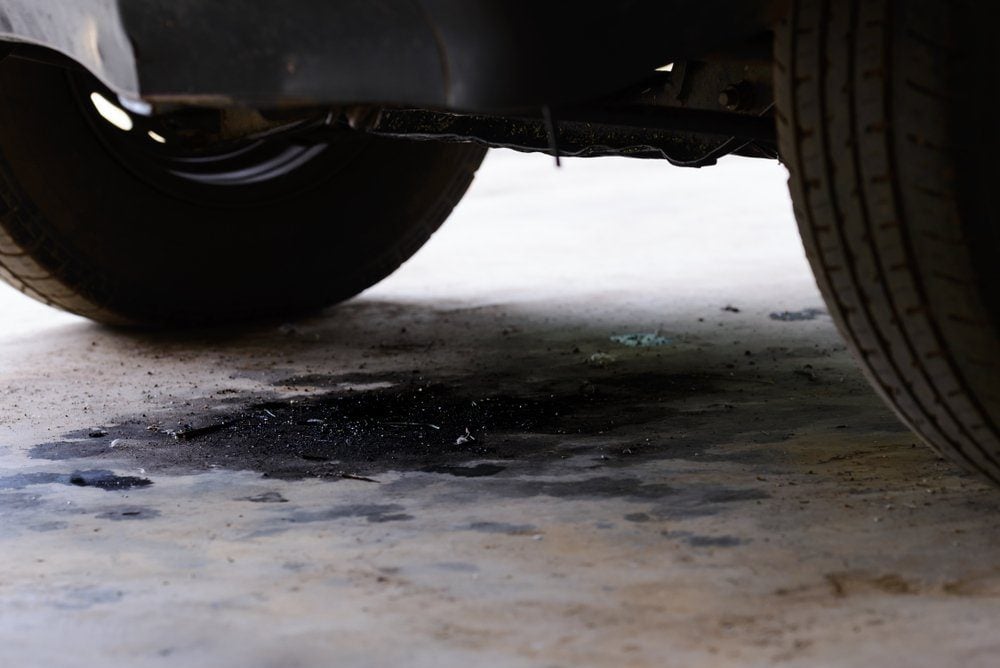
Potential leaks
If you start to notice random puddles under your car or tiny rivers that start to flow beneath your ride in the driveway and in parking lots, don’t brush these issues aside. Leaks from your car—whether it’s gas, coolant, or oil—can dramatically affect your safety and the overall performance of your vehicle, says Arevalo. If you notice a leak, take your car straight to a mechanic so you don’t end up paying a lot more for the repair in the future.
Learn to spot the signs your car is about to die.
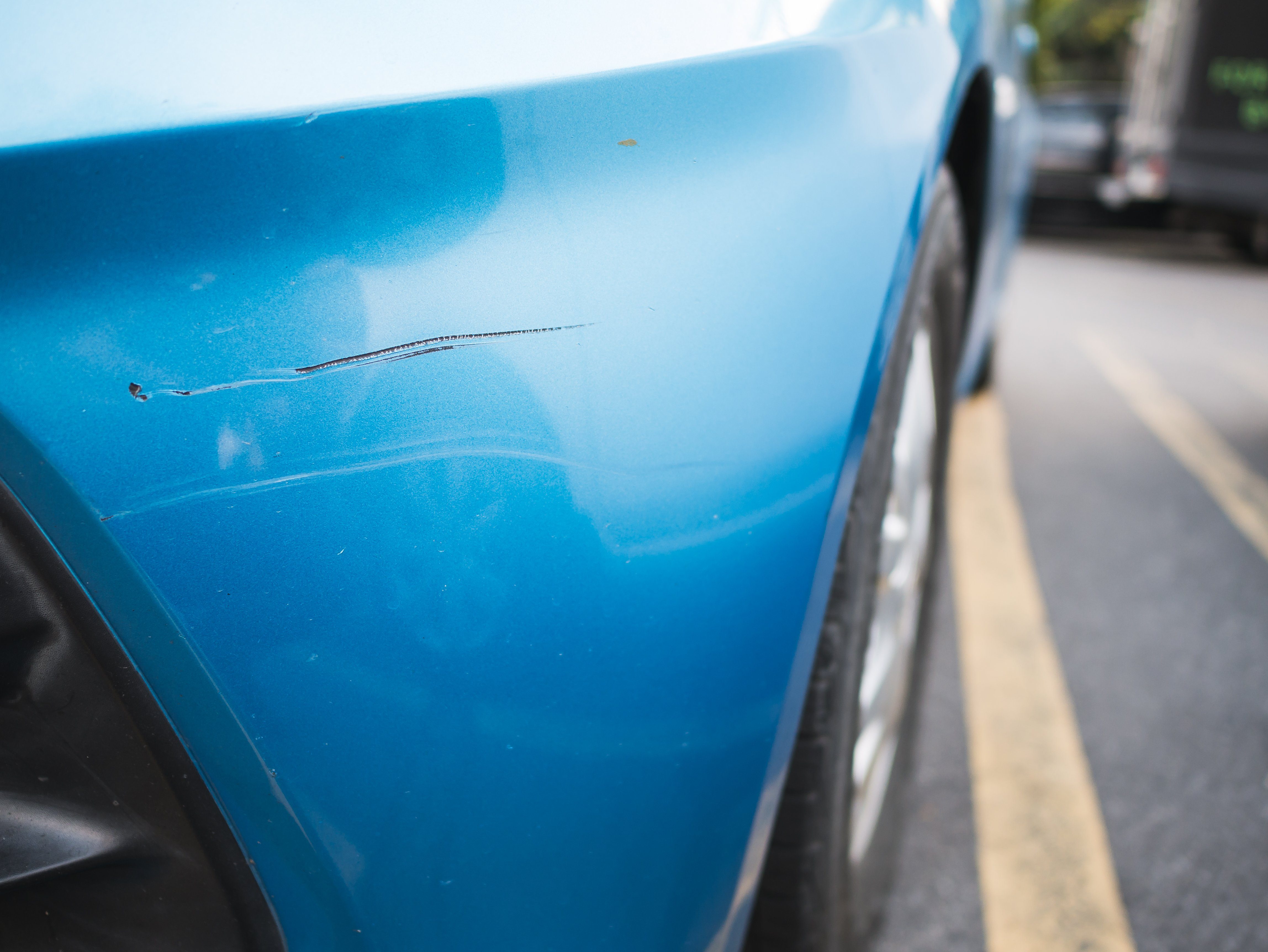
Scratches
So you picked up a little ding or scratch on your car. No big deal, right? Wrong, according to Bryan Rodgers, owner of Rodgers Performance, a top-dealer alternative Audi repair and service specialist located in Ottawa. He says that a scratch is “one car problem you should never ignore and should act on immediately, even if it’s barely noticeable because that scratch can turn into an apparent imperfection over time, which could really hurt its resale value.” But resale value isn’t the only potential issue. A small scratch today may eventually cost you big time, he adds, because “that scratch can lead to rust, which will lead to more expensive repairs down the road.”
Here are the best rust-proofing options on the market.
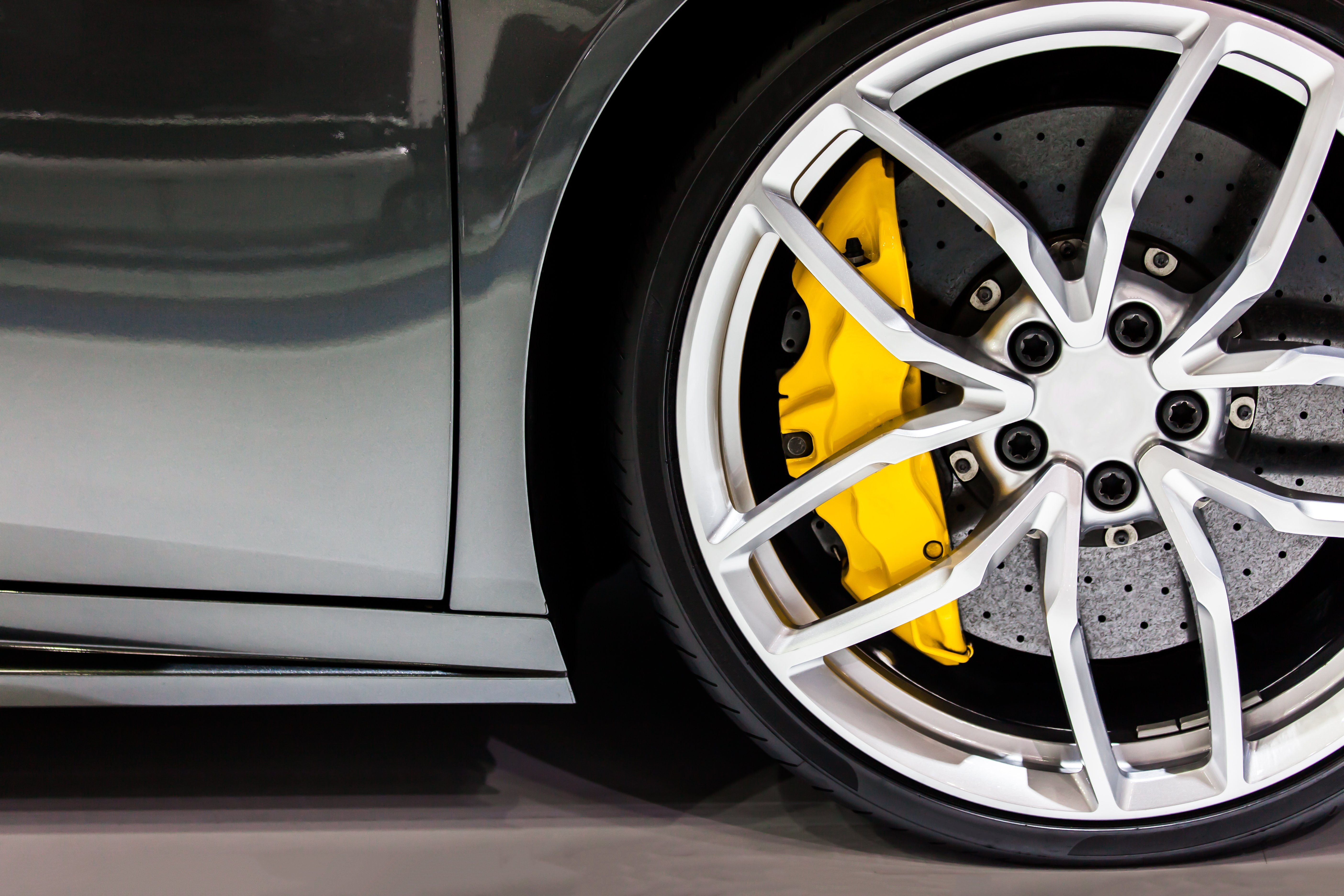
Noisy brakes
Automotive expert Lauren Fix chimes in on this car problem that she says people often ignore—something that’s incredibly unwise. After all, your brakes are the only thing that can actually stop your car! “That screech you hear is the brake pad (the friction material the runs against the rotor to stop your vehicle) indicator rubbing against the brake rotor (the big metal disc that you see through the wheels),” she explains. Make an appointment with your dealer or local mechanic the first time you hear this screech, not the hundredth. Why? At this point, says Fix, “it could be as simple as a $200 brake job of new pads and rotors. If ignored, the brake pads will continue to make noise and wear even further until the braking material is gone. This is where it gets really expensive with a $2,000 brake overhaul.”
Next, find out what these strange car noises could mean—and how to fix them.